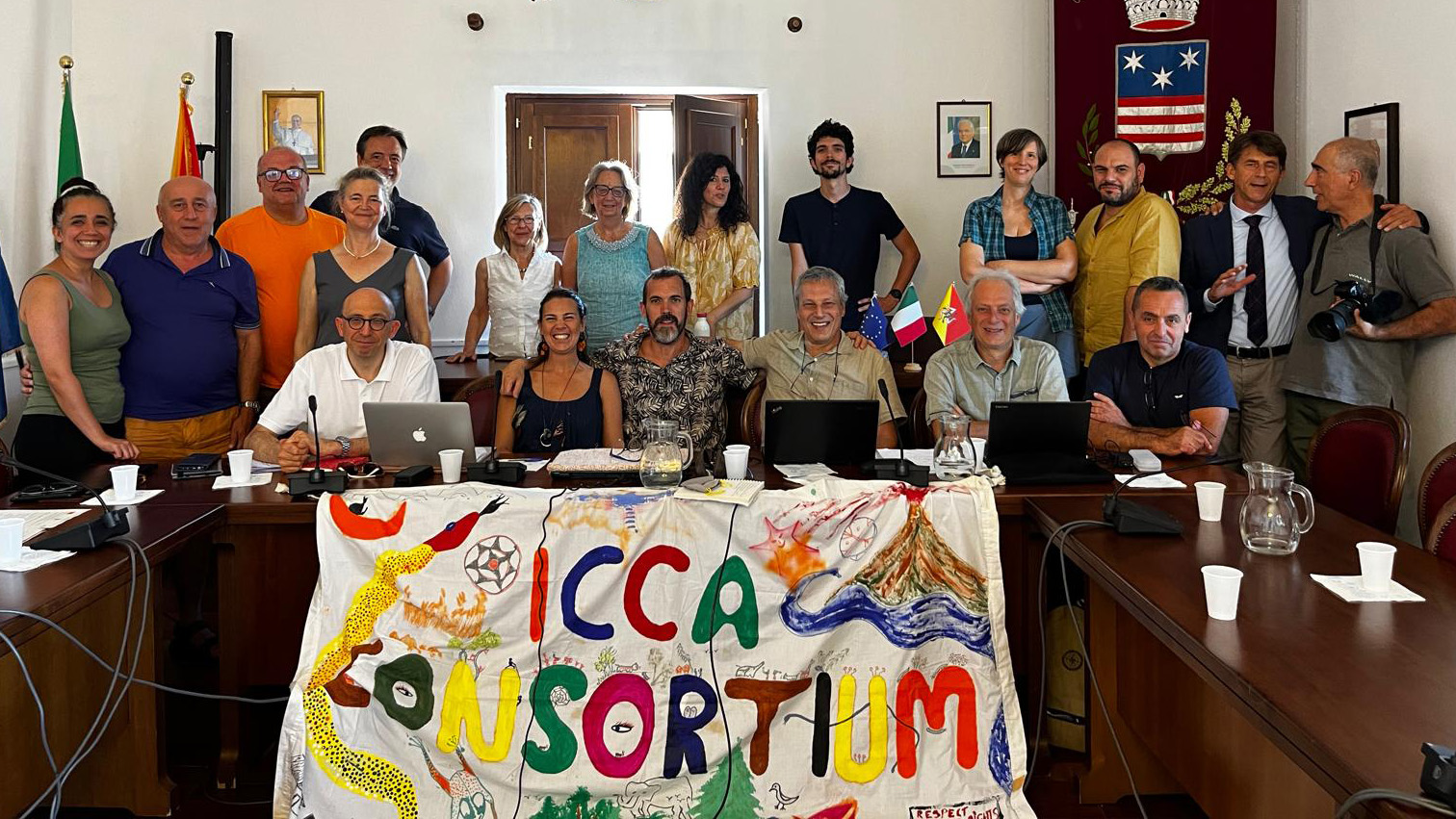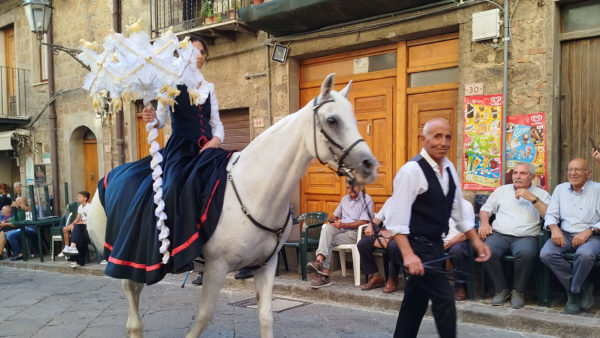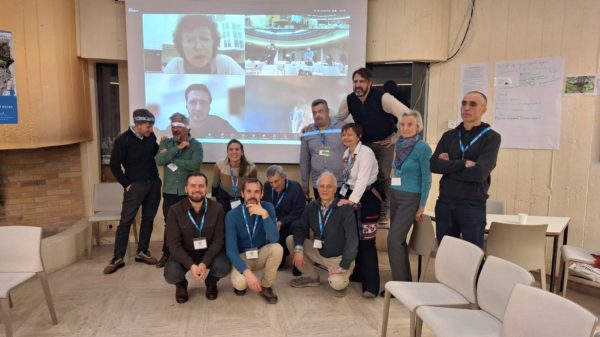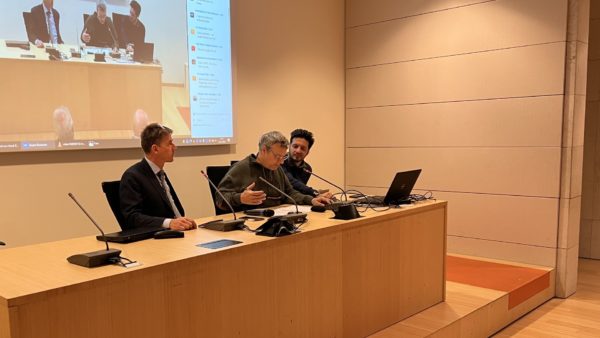The statute of the association was approved at a recent national meeting in the historic village of Geraci Siculo, located in the Madonie Park on the island of Sicily
First published on 09/08/2025, and last updated on 02/26/2026
By ICCA Consortium
Representatives of pastoralist associations, conservation organizations, local administrators, and researchers from across Italy convened for a two-day conference from July 20, 2025.
The second day of the conference was dedicated to training and planning for an Italian national network of territories of life. In the municipal council chamber of Geraci Siculo, the session was facilitated by Eleonora Fanari and Federico Bigaran.
The discussions and debates were built on decades of experience of communities in collective lands and many years of self-organizing and solidarity among ICCAs—territories of life in the country.
At the beginning of the day, Prof. Marco Bassi emphasized the value of global databases such as the ICCA Registry for recognizing community-led conservation. During the debate, the need emerged to develop a strategy to promote territories of life as effective realities for nature conservation. The implications of the various forms of territorial “governance” linked to them are very significant, especially considering new European Union measures such as the Nature Restoration Law, the new CAP, and the latest national programming on Inner Areas and Natural Parks. These initiatives, depending on how they are implemented at the national level, bring both opportunities and potential impacts on collective domains, whose territories often overlap with or are adjacent to protected areas.
Jasmin Upton from the UN Environment Programme’s World Conservation Monitoring Centre presented an Italian-language video on the ICCA Registry, explaining its voluntary registration process, peer-review system, and benefits, including increased visibility, recognition, and the development of internal and external relationships. Unlike protected area databases, ICCA Registry’s review and validation is conducted by other communities, not governments.
Sergio Couto, from the Laboratory of Biocultural Archaeology at the University of Granada, Spain, and an honorary member of the ICCA Consortium, presented the experience of Iniciativa Comunales in Spain in registering a local community in the ICCA Registry. The association was created specifically to promote and provide technical support for this process. Key stages include the “Internal Self-Assessment Process,” the “Peer Review Process,” and the “Anonymous Critical Evaluation.” The facilitator’s role is crucial in guiding the community through the process. The procedure is designed to prevent the misuse of information and to avoid the instrumentalization of the registry for purposes related to greenwashing.
The national network can utilize the informational material already developed in Spain to conduct further awareness-raising activities at both national and European levels, Sergio mentioned. In the debate, an opportunity emerged to create a national-level peer review process.
Regarding the network’s strategy, the discussion highlighted the importance of organizing and participating in initiatives at different scales: global, European, national, regional, and local. Ensuring the quality of information, the concreteness of actions, and the clarity of concept presentation is essential, also to avoid misrepresentation of information.
The objectives identified for the network include: encouraging citizen participation; promoting the recognition of Local Communities; fostering networking and relationships; adding value to local production; defending Local Communities from external threats to their resources; providing support to local communities from individuals, associations, and institutions, including in the international context; and influencing national and European policies.
Given the numerous processes already in place among environmental associations working to protect territories, it was emphasized that the registry must select only communities that are truly ICCAs—that is, those with proven and effective governance systems for their territories. It is not possible to waive the strict verification of requirements, as this would be counterproductive for all registered communities. However, the historical age of the ICCA is not relevant—recent initiatives can also be included, provided they meet the necessary criteria. It is crucial to demonstrate the ongoing socio-environmental sustainability of a community’s practices, whether ancient or recent.
The meeting concluded with the approval of the statute to form the Italian Association of territories of life – APS, with aims including:
- Recognition, promotion, and support of ICCAs–territories of life (terrestrial and marine).
- Protection and enhancement of collective heritage, landscapes, and biodiversity.
- Support for local communities and traditional governance systems.
- Research, training, and cultural activities on sustainable collective management.
- Active citizen participation in territorial care.
- Advocacy for public policies aligned with these goals.
Thus, in Geraci Siculo, the Italian Association of territories of life, was formally established.
Note: Meeting recap reported by Federico Bigaran and Eleonora Fanari.



